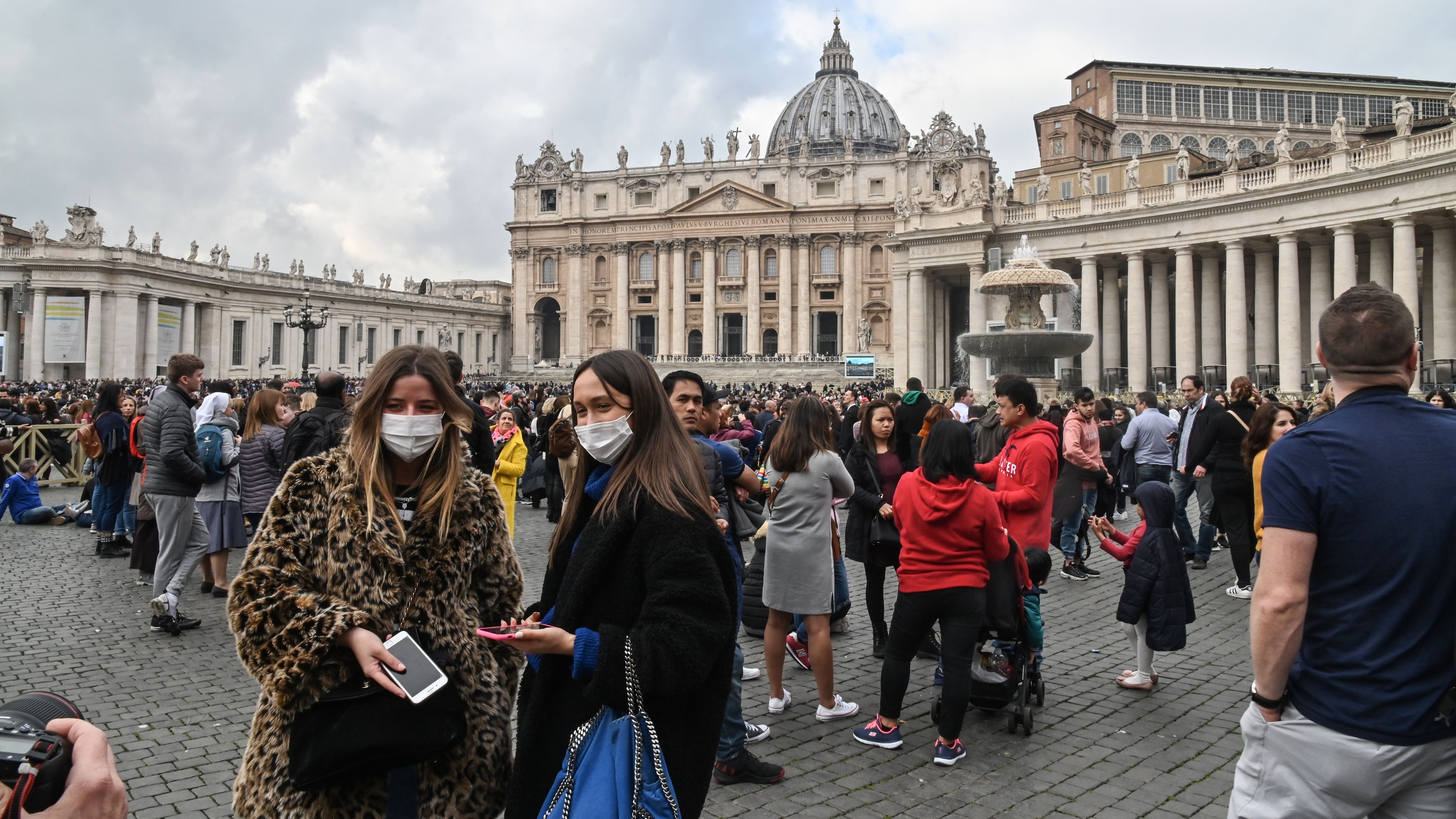Coronavirus: is it safe to visit Italy?
The European country has third-highest infection rate in the world after China and South Korea

A free daily email with the biggest news stories of the day – and the best features from TheWeek.com
You are now subscribed
Your newsletter sign-up was successful
British people returning home from northern Italy are being told to self-isolate if they show any symptoms of the new coronavirus, as Italian authorities report a spike in cases in the region.
Several parts of Lombardy and Veneto have been quarantined as Italy’s total death toll from the Covid-19 disease reaches seven, after four fatalities in the area were confirmed on Monday.
Any UK citizens who experience flu-like symptoms after travelling north of Pisa should stay at home for 14 days, while those returning from Italy’s quarantined towns should self-isolate even if they do not feel unwell, Health Secretary Matt Hancock has advised.
The Week
Escape your echo chamber. Get the facts behind the news, plus analysis from multiple perspectives.

Sign up for The Week's Free Newsletters
From our morning news briefing to a weekly Good News Newsletter, get the best of The Week delivered directly to your inbox.
From our morning news briefing to a weekly Good News Newsletter, get the best of The Week delivered directly to your inbox.
Any UK citizens stuck in the lockdown areas should contact the British embassy in Rome, he added.
So is Italy safe to visit at the moment?
Around three million British nationals visit Italy each year, but some tourists are now questioning the safety of the popular destination as the number of reported coronavirus cases soars to more than 280, according to latest figures from real-time statistics site Worldometer.
Hancock has said that the UK government’s official health advice for Italy has not changed and that there are no plans to stop flights from the country, following warnings from health experts that such a move would be ineffective.
A free daily email with the biggest news stories of the day – and the best features from TheWeek.com
“If you look at Italy, they stopped all flights from China and they’re now the worst affected country in Europe,” he said.
However, the Italian towns of Codogno, Castiglione d’Adda, Casalpusterlengo, Fombio, Maleo, Somaglia, Bertonico, Terranova dei Passerini, Castelgerundo and San Fiorano in Lombardy and Vo’ Euganeo in Veneto are currently under lockdown, with travellers advised to steer clear.
Areas outside of the coronavirus hotspots that have deemed safe to visit include Florence and Milan, but two cases have been confirmed in Venice, CNN reports.
And Italian authorities have announced the first confirmed coronavirus case in the south of the country. A woman from Bergamo who was on holiday with friends in Sicily has been hospitalised in Palermo after testing positive for Covid-19, reports The Guardian.
Italy now has more confirmed cases than any other countries except China and South Korea.
But according to the head of the civil protection agency managing Italy’s response to the outbreak, infection rates are slowing, as news site The Local reports.
“I think the numbers that we have registered in Italy and in the rest of the world have been confined to reasonable figures,” said Angelo Borrelli.
–––––––––––––––––––––––––––––––For a round-up of the most important stories from around the world - and a concise, refreshing and balanced take on the week’s news agenda - try The Week magazine. Start your trial subscription today –––––––––––––––––––––––––––––––
Who has died?
The latest person to die from the virus in Italy was a 62-year-old man from Lombardy who was on dialysis.
Three other men from the northwestern region, all in their 80s, were confirmed to have died hours earlier on Monday.
Another man and two women died from Covid-19 over the weekend.
Most of the cases in Italy can be traced back to an unnamed 38-year-old man in the now-locked down town of Codogno whom authorities have called “patient one’’. Investigators are reconstructing his movements over the past few weeks in a bid to trace everyone with whom he may have come into contact.
“We still cannot identify patient zero, so it’s difficult to forecast possible new cases,” said Borrelli at an earlier press conference.
On Monday, Prime Minister Giuseppe Conte blamed the surge in cases on a hospital that he did not name, claiming that the disease had spread “because safety protocols were not respected’’.
How else has the coronavirus affected Italy?
The outbreak has disrupted a number of high-profile events including Milan Fashion Week and the Venice Carnival, while Serie A football matches have been postponed.
“The landmark Duomo Cathedral, its spires towering over Milan, is closed,” says The New York Times. “So are La Scala, Italy’s premier opera house, and the city’s universities and schools. Bars are shuttered at the sacred aperitivo hour. The usually buzzing streets, trams, restaurants and shops are all eerily empty.”
Many church masses have been cancelled, and funerals have been limited to immediate relatives only, reports The Local.
Meanwhile, the Italian stock market has slumped by nearly 6% - the biggest fall since August 2015, says MarketWatch.
“It’s obvious that these crises happening in these days will inevitably have an impact on the Italian economy,” said Marco Barbieri, secretary general of Confcommercio Milan, the city’s top commercial organisation.
The Italian hotel association has admitted to being “very worried” about the impact of the outbreak on bookings, adding that the country is in the “eye of the storm”.